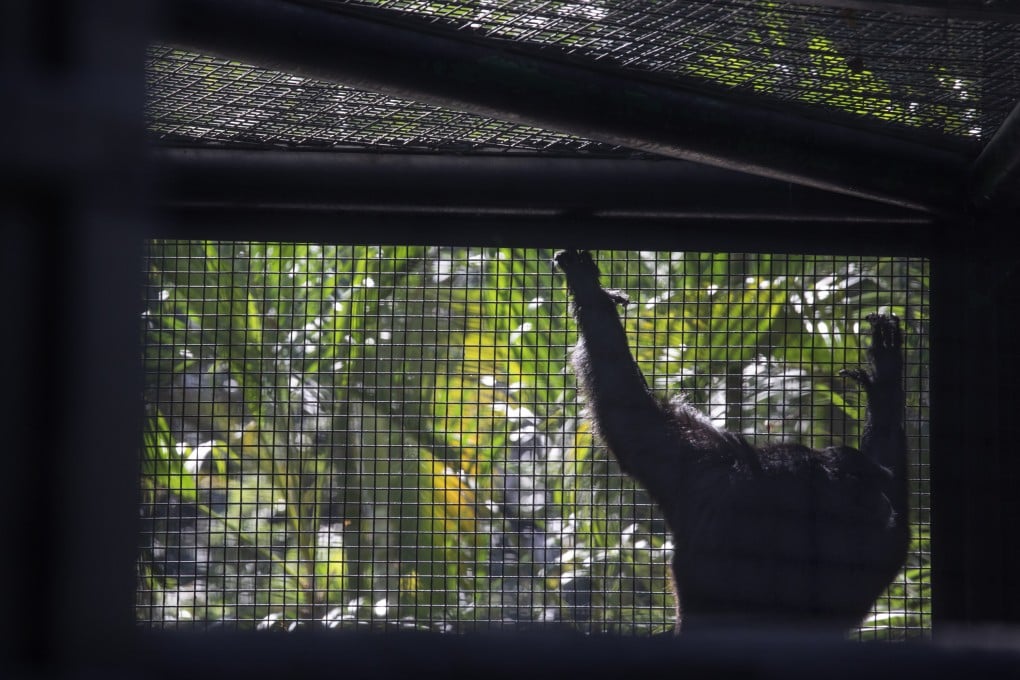Is Hong Kong zoo stuck ‘in the dark ages’ or inspiring the young to care for animals?
- The Hong Kong Zoological and Botanical Gardens, founded 150 years ago, faces questions about the welfare of the animals in its cramped cages

Completed in 1871, the Hong Kong Zoological and Botanical Gardens offer a precious green space in one of the densest urbanities on Earth, drawing up to 9,000 visitors per day on weekends, even in the absence of international tourists due to Covid-19 travel restrictions.
“I don’t go there and wouldn’t take my child there either,” says barrister and animal-welfare legislation expert Amanda Whitfort. “It’s an inappropriate place to keep primates, in my view.”
Hers is just one voice in a growing chorus, especially among animal rights groups such as People for the Ethical Treatment of Animals (Peta), who say the anniversary should have meant closing the zoo, and relocating the animals to reputable wildlife sanctuaries.

About half of the 5.6-hectare gardens site, managed by the Leisure and Cultural Services Department, accommodates some 170 birds, 80 mammals and 20 reptiles, housed in 40 enclosures. And as 2022 begins, looking a lot like 2021, feeling trapped is something that resonates.